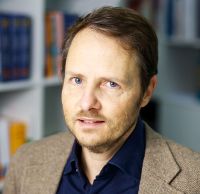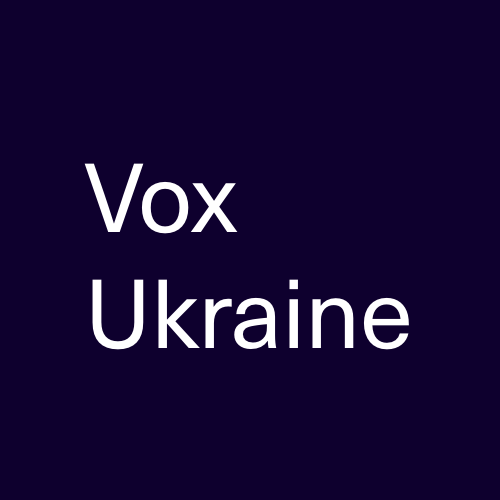Since Ukraine’s new government has been sworn in on 2 December 2014 the main accomplishment in implementing political reform has been adoption of the law “On Ensuring the Right for Fair Trial” (the “judiciary law”). Meanwhile, other aspects of political reform, such as changes in the electoral framework and decentralization initiative, have not been moved forward yet. Three months had passed since the new government assumed the office and a certain number of pitfalls in reforming Ukrainian politics have become apparent.
Introduction
Since Ukraine’s new government has been sworn in on 2 December 2014 the main accomplishment in implementing political reform has been adoption of the law “On Ensuring the Right for Fair Trial” (the “judiciary law”).[1] Meanwhile, other aspects of political reform, such as changes in the electoral framework and decentralization initiative, have not been moved forward yet. The process of developing comprehensive and highly anticipated constitutional reform has just begun.[2] On 3 March 2015, President Poroshenko established a commission to elaborate the necessary constitutional reforms. This commission unites the efforts of experts nominated by and representing government agencies, political parties, civil society, academia and international organizations. They are expected to devise and propose constitutional amendments through an open and inclusive consultation process. Constitutional reforms are needed to anchor most of other key reforms and to safeguard them against a future constitutional challenge, as argued in DRI’s December Briefing Paper assessing the political reforms adopted after Euromaidan. Three months had passed since the new government assumed the office and a certain number of pitfalls in reforming Ukrainian politics have become apparent.
Pitfalls
-
Executive overdrive
The presidential administration and the government are in a difficult spot. On the one hand they are beleaguered by the international community and Ukrainian civil society demanding swift delivery of political reforms. On the other hand, they are requested to carry out an inclusive democratic reform process. These are potentially contradictory demands because inclusion and consultations take time. Hence, a proper balance has to be found between these two requests. It appears that so far reforms have been veering too much towards speed at the expense of transparency. Last year the Presidential administration prepared plans for constitutional reforms without much consultation. They subsequently floundered. This year the crucial and highly complex judiciary reforms were pushed through parliament by stealth. MPs received more than 1000 pages of amendments a few hours before the second reading. Reducing the Rada in this manner to a rubberstamp body is at odds with Ukraine’s democratic aspirations.
-
Losing ukraine’s reformists
Executive overdrive risks losing Ukraine’s most precious resource: the critical mass of reformists, many of whom are MPs, who are determined to reform the country along European lines. The process of reforms is as important as their substance: The way laws are changed and deliberated is as important as the actual change in legal text. MPs need to feel ownership of these reforms and endorse them towards their constituencies and the media. If they do not explain and endorse the reforms, public acceptance will dwindle fast. It should be kept in mind that all reform-minded parties need to be kept on board to muster the required 2/3 majority of MPs for the crucial constitutional changes. Likewise, civil society should be involved. Though it does not have the last word on reforms (which rests with the elected representatives), but civil society’s endorsement is equally critical to convincing the public that the country is changing.
It should serve as a warning that most MPs of “Samopomich” (“Self-help”), a pro-reform party in parliament, did not vote for the judiciary law in its second reading. They do not object to reforms, rather they object to the old practice of expecting Rada to rubberstamp laws without getting even giving a chance to read them even in the most cursory manner. The need for speed is agreed. Although Ukraine cannot afford a protracted reform process, it should be a matter of weeks and months, but not of hours.
-
Concentration of power
The risk of executive overdrive has raised the specter of a concentration of power by the President. Legal initiatives that are hammered through parliament in a matter of hours remind of bad old habits. Another case in point is the proposed draft constitutional amendment on immunities. It does reflect a public desire to end impunity for criminal interests, which have hidden behind parliamentary immunity. However, there is a risk of increased power by the unreformed judiciary and the executive over parliament. This would be an unfortunate recalibration of the balance of powers in a context where a new, democratically elected parliament is supposed to be a driver of change.[3]
-
Mismanagement of expectations
There have been several documents laying out the future reform plans, such as the coalition agreement and the government agenda. As DRI emphasized before, these documents are not coherent, while the crucial questions (e.g. the constitutional reform) are not even a consideredtop priority on the agenda.[4] In absence of a clearer roadmap, the huge expectations for a quick overhaul of the country’s political structures are not managed and easily frustrated. The Presidential administration and the government need to provide a clearer roadmap of political reforms to the public: crosspurposesWhat will be the main strands of reforms, what are the timelines and how are the various reforms linked?. An open and decisive constitutional reform process, affecting all other key reform areas, would provide an overarching and understandable reform narrative. It should thus be treated as a priority as long as the required parliamentary 2/3 majority is present.
-
A split executive
President Poroshenko and Prime Minister Yatseniuk represent different parties and partially different outlooks on the war in Donbass and internal issues. A widening gap between the two could undermine the reforms, with the Presidential administration and the governmencross purposes. Both sides should keep in mind their shared interest in and responsibility for reforms. Despite different views on the war and the Minsk process, they should not allow Russia or the armed groups in the East to drive a wedge into the reformist camp. This would ultimately cause a breakdown, bringing reforms to a standstill. Such an outcome would serve nobody in Ukraine and be a victory for those who want to divide and weaken the country.
-
International cacophony
The Ukrainian authorities are flooded with international offers of support in implementing reforms and a plethora of special reform bodies. The willingness to support is positive, however, there is a lack of coordination and an international cacophony of advice, with every specialist team promoting different priorities and ideas. The international players, the EU, and the international financial institutions, in particular, should be clear, unified and focus on the essential when expressing their expectations on political reforms. The framework of international and European law and political commitments provides the basis for cooperation between Ukrainian authorities and expert bodies, which has been developing for many years already. The most important player here is the Council of Europe’s Venice Commission, which has been dealing in-depth with all aspects of Ukraine’s political reforms for almost two decades. The opinions by this body should serve as the most important international indicator of progress or not on the path to reforms.
-
The narrative of reforms in times of war
One argument often put forth against reforms is that a country at war should not engage in deep reform and instead concentrate its resources on military efforts. This is a dangerous argument, even more so because it is superficially plausible. It is also a wrong argument because it implies that Ukraine is a well-functioning state. Part of Ukraine’s problem is a dysfunctional state. Many citizens did not identify with a state so riddled by corruption. The poor state of the military resulted from corruption and lack of long-standing reforms. Corruption and state capture can only be combated by systematic political reforms that establish a real separation of powers and the rule of law. Ukraine is fighting a war on two fronts: against the external military aggression and against an entrenched system of state capture by business elites. It is bound to fight both wars at the same time.
By Michael Meyer-Resende of Democracy Reporting International, with contributions from Ruslana Vovk, Mykola Gnatovsky and Andriy Kozlov
Notes
[1] The law “On Ensuring the Right for Fair Trial” was adopted by the Verkhovna Rada in the second reading on 12 February and signed by President Poroshenko on 25 February.
[2]The constitutional amendments suggested by the new Verkhovna Rada so far address the parliamentary immunity and immunity of judges. See DRI’s Briefing Paper 53: Reforming parliamentary immunities in Ukraine.
[3]See DRI’s Briefing Paper 53: Reforming parliamentary immunities in Ukraine
[4]See DRI’s Briefing Paper 51: Ukraine’s political reforms: One year on from Euromaidan
Attention
The authors do not work for, consult to, own shares in or receive funding from any company or organization that would benefit from this article, and have no relevant affiliations





